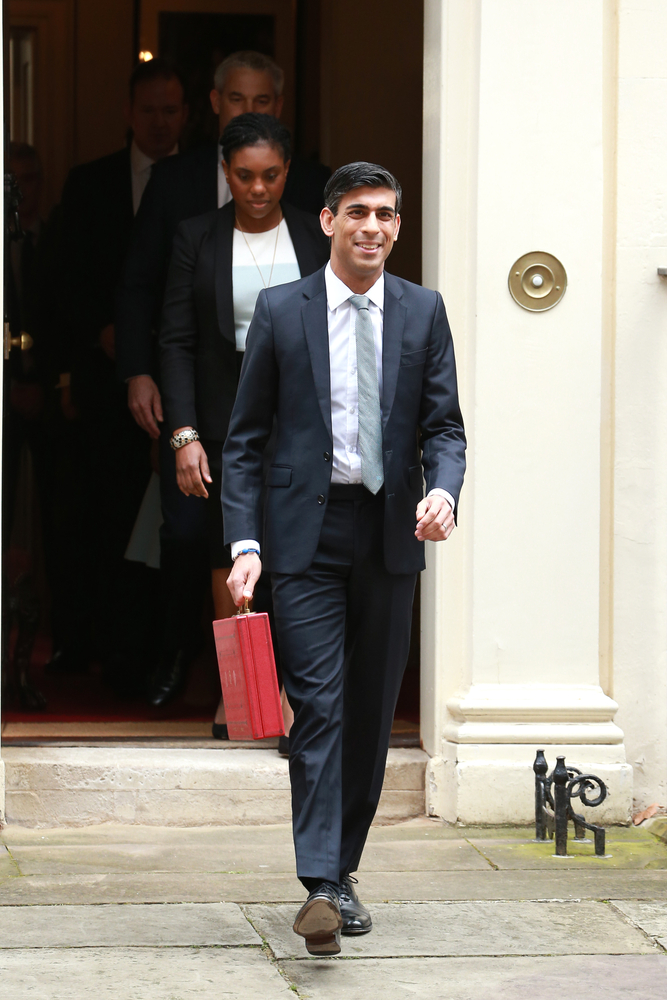The UK government is set to announce its Autumn Statement around midday today, with Chancellor of the Exchequer, Jeremy Hunt, expected to outline fiscal policies to ‘get Britain growing’.
Fiscal policies will, inevitably, have an impact on the UK’s fintech, financial services and payments landscape. One particular policy that is widely reported in UK media is that of tax cuts – but Alastair Douglas, TotallyMoney CEO, doesn’t think the average consumer will see the benefit of these due to fiscal drag.
It is anticipated that Hunt will cut National Insurance by 1% while business rates are also expected to be slashed in a bid to grow the economy.
“In the past two years, record levels of inflation have driven up the cost of a pint of milk by 44%, while the government froze the personal tax allowance at £12,570,” Douglas remarked.
“This has meant that as businesses provided staff with the financial support the government didn’t, wage rises walked millions of workers into paying more tax — a majority of whom were already some of the UK’s lowest earners.
“And although the government is claiming victory in the fight against the cost of living, households up and down the country are unlikely to agree when on Thursday morning, Ofgem tells us to prepare for another energy price hike this January.
“So while these so-called tax cuts might make the headlines, they won’t be doing much to heat struggling households, or fill empty stomachs this Christmas. Jeremy Hunt may have claimed the economy has ‘turned a very big corner’ — but is the government just going round the houses?”

Source – Shutterstock
So going beyond the Autumn statement’s impact on the man on the street and looking more at the macroeconomic picture, what could Chancellor Hunt’s potential measures pose for the UK’s financial industry?
‘Levelling up’ the British economy has been one of the big buzzwords of the Conservative government since the 2019 General Election win, with much of this approach focusing on developing the UK’s regions, such as the now stripped-back HS2 rail project.
However, part of this has seen the government detail ambitions for the UK to become a leader in fintech and payments. Ben Ruffels, VP of Public Policy at real-time payments provider Volt, believes that today’s statement poses a ‘huge opportunity for the British government to spark the next wave of innovation in financial services’.
“Setting out an ambitious vision for the future of open banking and retail payments would put wind in the sails of UK fintechs like Volt, who are already transforming how money moves,” he explained.
“To take real-time open banking payments to the next level, and turbocharge their adoption by merchants and their customers, we urgently need the UK’s Joint Regulatory Oversight Committee (JROC) to clarify how our open banking ecosystem will be overseen during the next phase of its evolution.
“Any future framework needs to protect the world-leading open banking ecosystem we’ve built and unleash the market-led collaboration between banks and fintechs that will catapult it forward.
“One area where this collaboration could bring major benefits for businesses and their customers is Variable Recurring Payments (VRPs). This model of open banking payments could support a range of new payment use cases: one-click checkout, subscriptions and in-app payments are all on the table. A clear plan to unlock this potential will move us much closer to building propositions that truly rival the global card networks.”

Source – Shutterstock
As mentioned above, boosting the UK’s fintech sector has been a government goal since 2021, when Rishi Sunak – who at the time held the role of Chancellor, prior to his ascent to PM after the downfall of Liz Truss last year – explained the ambition at that year’s Fintech Week.
At the time, Sunak emphasised a need for the FCA’s ‘scale box’ and the Centre for Finance, Innovation and Technology to boost growth, for greater digitisation of UK finance via a central bank digital currency taskforce and support for technology and infrastructure, and lastly plans for reform of capital markets.
Since assuming leadership of the Conservative Party last year, Sunak’s government has also restructured the government to reflect his tech ambitions, creating the Department for Science, Innovation and Technology.
Ruffels is hopeful that today’s statement will show that the government remains committed to these plans and to investing in and enhancing the UK’s fintech and payments sector.
He continued: “Beyond open banking, we’re seeing innovation in the world of digital assets and a possible digital pound on the horizon. This all points to a more diverse and complex payments landscape. That’s why the Future of Payments Review, expected alongside the Statement, should recommend an overarching payments strategy for the UK.
“A shared roadmap for the future will help our payments landscape evolve more coherently. If we can follow a course that avoids siloed payment methods, drives competition and captures synergies, payment innovation is more likely to deliver real-world benefits for consumers and businesses.
“We’ll be watching the Autumn Statement closely, and hope it will be the catalyst for even more open banking innovation, and radically improved payment services.”
Chancellor Jeremy Hunt is expected to announce the Autumn Statement early this afternoon – stay tuned to Payment Expert for all subsequent updates.























